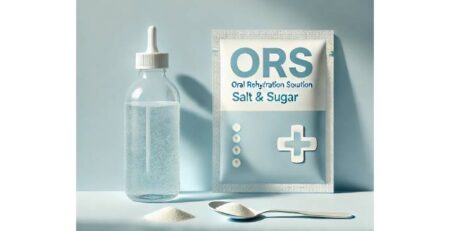Everything You Need to Know About Whey Protein
A Comprehensive Guide to Whey Protein
Whey protein is one of the most popular dietary supplements in the fitness and health industry. Whether you are a professional athlete, a fitness enthusiast, or someone looking to improve their overall health, whey protein can be a valuable addition to your diet. In this comprehensive guide, we will explore everything you need to know about whey protein, including its benefits, safety, potential side effects, and how to choose the best whey protein powder for your needs.
What is Whey Protein?
Whey protein is a high-quality protein derived from milk during the cheese-making process. It is a complete protein, meaning it contains all nine essential amino acids that the body cannot produce on its own. Whey protein is known for its rapid digestion and absorption, making it an ideal post-workout supplement to support muscle recovery and growth.
Types of Whey Protein
There are three main types of whey protein, each with its unique characteristics:
1. Whey Protein Concentrate (WPC)
Whey protein concentrate is the most common form of whey protein. It contains a lower percentage of protein (typically 70-80%) and higher amounts of fat and lactose. WPC is less processed and retains more of the beneficial nutrients found in whole milk.
2. Whey Protein Isolate (WPI)
Whey protein isolate is a more processed form of whey protein that contains a higher percentage of protein (90% or higher) and minimal amounts of fat and lactose. This makes WPI an excellent choice for individuals who are lactose intolerant or looking to reduce their carbohydrate intake.
3. Whey Protein Hydrolysate (WPH)
Whey protein hydrolysate is pre-digested, meaning it has undergone partial hydrolysis, a process that breaks down the protein into smaller peptides. This makes WPH the fastest-digesting form of whey protein, making it ideal for post-workout recovery.
Benefits of Whey Protein
Whey protein offers numerous benefits for individuals of all ages and activity levels. Some of the key benefits include:
1. Muscle Growth and Repair
Whey protein is rich in branched-chain amino acids (BCAAs), particularly leucine, which plays a crucial role in muscle protein synthesis. Consuming whey protein after resistance training can help promote muscle growth and repair.
2. Weight Management
Whey protein can aid in weight management by promoting satiety and reducing appetite. Replacing high-calorie snacks with whey protein shakes can help individuals maintain a calorie deficit, supporting weight loss.
3. Improved Immune Function
Whey protein contains immunoglobulins and lactoferrin, which have immune-boosting properties. Regular consumption of whey protein can help strengthen the immune system and improve overall health.
4. Enhanced Recovery
Whey protein is quickly absorbed by the body, making it an excellent choice for post-workout recovery. It helps replenish amino acids lost during exercise, reducing muscle soreness and improving recovery time.
Is Whey Protein Safe?
Whey protein is generally safe to consume for most people when taken within the recommended amounts. It is important to follow the manufacturer’s guidelines and consult a healthcare professional if you have any underlying health conditions. Here are some key points to consider:
1. Recommended Dosage
The recommended dosage of whey protein varies based on individual needs and goals. For most people, consuming 20-30 grams of whey protein per day is sufficient to support muscle recovery and growth.
2. Hydration
It is essential to drink sufficient water when consuming whey protein, especially if you are on a high-protein diet. This helps prevent dehydration and supports kidney function.
3. Choosing High-Quality Whey Protein
Always choose the best whey protein powder to avoid harmful effects caused by low-quality products. Look for reputable brands that provide transparent ingredient lists and third-party testing.
Potential Side Effects of Whey Protein
While whey protein is safe for most people, excessive consumption can lead to potential side effects. It is important to be aware of these and adjust your intake accordingly:
1. Digestive Issues
Some individuals may experience digestive issues such as bloating, gas, or diarrhea when consuming whey protein, particularly if they are lactose intolerant. Opting for whey protein isolate or hydrolysate can help reduce these symptoms. According to a study published in the Journal of Dairy Science, lactose intolerance is a common issue among whey protein consumers, leading to gastrointestinal discomfort in susceptible individuals.
2. Kidney Strain
A high-protein diet can put additional strain on the kidneys, especially in individuals with pre-existing kidney conditions. It is important to monitor protein intake and consult a healthcare professional if you have concerns about kidney health. A study in the American Journal of Kidney Diseases highlights that excessive protein intake may exacerbate kidney function decline in those with pre-existing renal conditions.
3. Liver Effects
Excessive protein intake can add extra load on the liver, potentially causing harm over time. It is crucial to maintain a balanced diet and avoid overconsumption of protein supplements.
Debunking Common Myths About Whey Protein
There are several myths surrounding whey protein that can cause confusion. Let’s address some of the most common ones:
1. Whey Protein Causes Hair Loss
There is no scientific evidence to suggest that whey protein causes hair loss. Hair loss is influenced by various factors, including genetics, hormones, and overall health.
2. Whey Protein is Only for Bodybuilders
Whey protein is beneficial for individuals of all fitness levels, not just bodybuilders. It can support muscle recovery, weight management, and overall health for anyone looking to improve their diet and fitness routine.
Where to Buy the Best Whey Protein Powder
Whey protein is widely available both online and in-store. Some of the popular online platforms where you can purchase whey protein include Amazon and Flipkart. When choosing a whey protein powder, consider the following brands known for their quality and effectiveness:
- Optimum Nutrition (ON): A well-known brand offering a variety of whey protein products, including Gold Standard Whey.
- GNC: Offers a range of high-quality whey protein powders with various flavors and formulations.
- Labrada: Known for its high-quality ingredients and effective protein supplements.
Conclusion
Whey protein is a versatile and beneficial supplement that can support various health and fitness goals. By understanding its types, benefits, and potential side effects, you can make an informed decision about incorporating whey protein into your diet. Remember to choose high-quality products, follow recommended dosages, and consult a healthcare professional if you have any concerns. With the right approach, whey protein can be a valuable addition to your healthy lifestyle.











